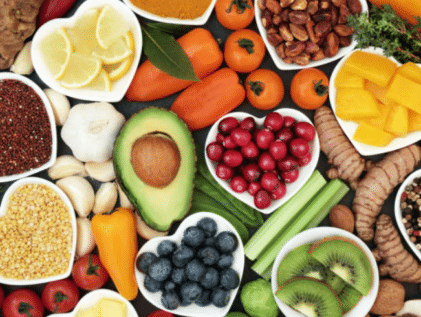When it comes to our diet, we tend to be motivated most by our physical appearance (nothing makes us drop that bag of chips faster than the thought of bathing suit season, right?). But while physical fitness is certainly something we need to pay attention to, experts would caution us that we need to be just as mindful about how what we eat affects our brain function and memory. Indeed, there’s compelling evidence that certain nutritional sources can protect against plaque formation, inflammation, and other phenomena associated with cognitive impairment, while other dietary choices can put us at greater risk. There’s a growing consensus around what types of foods we should seek out to prevent memory loss, and which ones we should avoid.
First, a brain-healthy diet begins with plenty of omega-3 fats, lean proteins, and fresh fruits and vegetables:
- Omega-3 fatty acids like DHA, the omega-3 found in fish oil, are thought to be a critical component in proper neuron transmission. Researchers at Tufts University recently concluded that people who ate fish three times a week could possibly decrease their chances of developing Alzheimer’s by almost 40%! Good sources of omega-3s include sardines, mackerel, salmon, and albacore tuna. If you’re not crazy about seafood, have your doctor recommend a good fish oil supplement.
- Lean proteins are the foundation of a heart-healthy diet, and physicians all agree that what’s good for your heart is good for your brain! So prioritize chicken, turkey, fish, eggs and tofu as good protein sources, and limit your red meat intake to once a week, tops.
- A powerful antioxidant, Vitamin C is essential for vascular health; some research suggests it may also protect against the formation of dementia-related brain plaque. Foods rich in Vitamin C include all citrus fruits, as well as broccoli, leafy greens, peppers, tomatoes, strawberries, and cantaloupe.
By contrast, a diet that’s high in sugar, unhealthy fats, and highly processed foods can cause inflammation and lead to greater risk of dementia and Alzheimer’s. Here are the types of foods to avoid:
- Sugary drinks like sodas and fruit juice spike blood sugar levels, putting you at greater risk for developing Type 2 diabetes – now considered a possible precursor to Alzheimer’s. Even without the instance of diabetes, the high fructose corn syrup contained in sugary drinks can lead to high blood pressure and arterial dysfunction – both risk factors for dementia.
- Man-made trans fats (unlike the ones naturally found in eggs and red meat) are also known as hydrogenated vegetable oils. Look for them in packaged cookies and cakes, frosting, snack foods and margarine – all foods to avoid for their sugar content alone. But trans fats are increasingly being looked at as possible contributors to cognitive impairment by virtue of their link to heart disease risk, as researchers continue to study the relationship between cardiovascular impairment and dementia.
- Highly processed foods like ready-made meals, microwave popcorn, store-bought snacks and sauces, and canned soups are high in salt, sugar, and added fats. They all promote weight gain, which causes fat around the organs, a phenomenon linked to damaged brain tissue. Not to mention the risks of heart disease that go along with salty foods – there’s that head and heart connection again!
For more information on what foods are good for your brain and what you should avoid, read about the MIND diet at CBS News.com.

